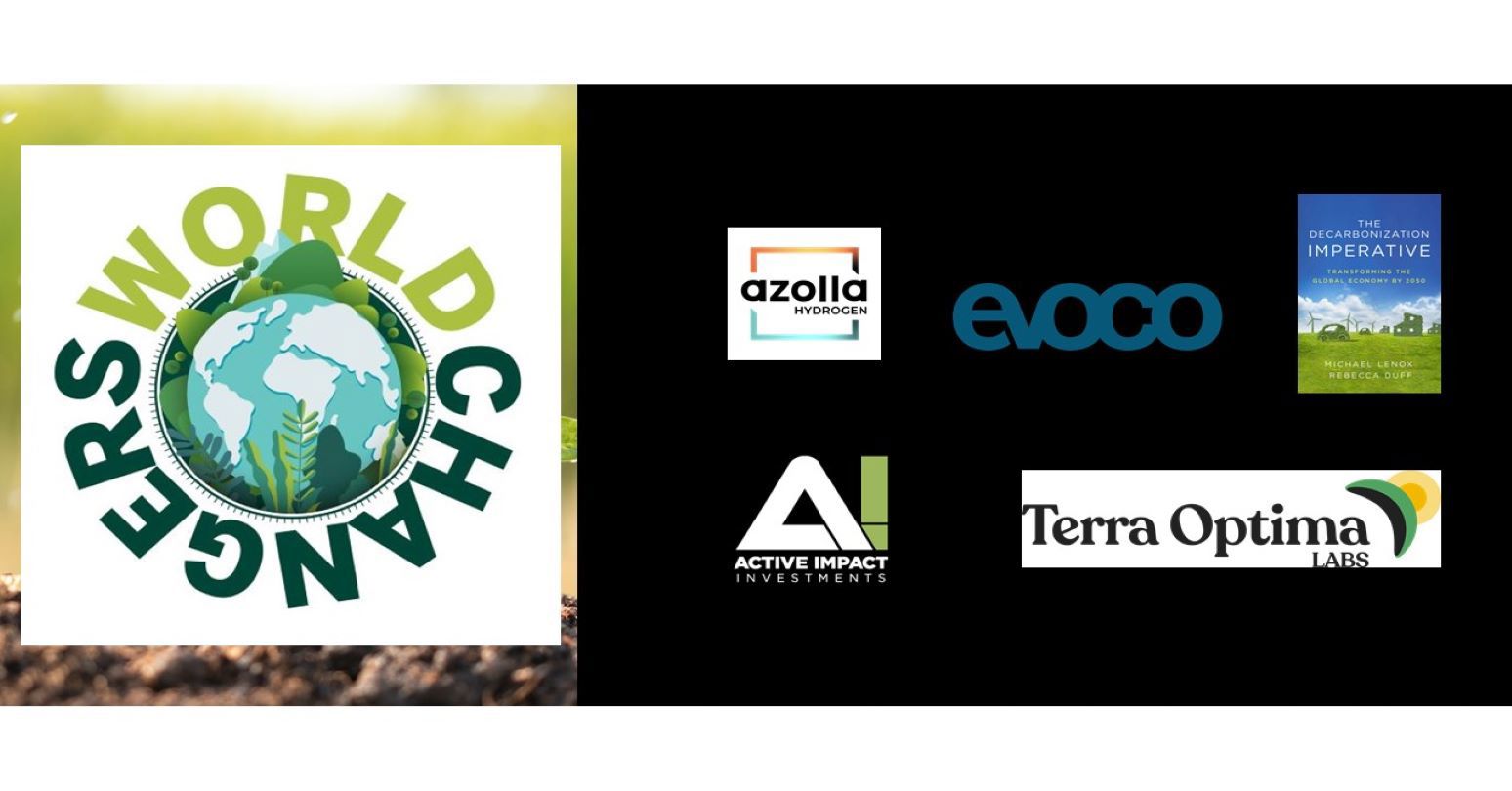The 2022 worldchangers event was held on March 18th and focused on introducing students to Ivey alumni in sustainability and environmental change by exploring concepts of decarbonization and impact investing.
Below are some key takeaways:
The Decarbonization Imperative by Michael Lenox and Rebecca Duff
Rebecca Duff and Michael Lenox, The Decarbonization Imperative: Transforming the Global Economy by 2050, had a clear message for us- we need to act now against climate change. We need to reduce emissions to net-zero by 2040. Even if we reach pledges and targets (big if), we will still reach 2.4 degrees celsius which will have catastrophic effects.
But there is hope! There is a light(bulb) at the end of the tunnel. Electrification is the vision of decarbonization (net-zero) by 2050. The plan is to electrify all transportation/vehicles, buildings, industrial processes, and agriculture, then reconfigure electrical generation portfolios to renewable energies. Duff and Lenox focused on studying the innovation s-curve towards the electrification of the highest scope 1 emitters by asking where are we on the s-curve, whether disruption is imminent, and how we make it occur. Lenox states that “we need a wide number of actions from a wide number of innovations.” Lenox encourages us to watch for signs of innovation such as rapid improvement, decreasing costs, emerging entrepreneurial ventures, and merging/failing companies.
Panel Session on Sustainability and Decarbonization
Dan Nejman and Will Wang spoke about Terra Optima, whose mission is to leverage nature and technology in food waste to grow food more sustainably. Both Dan and Will are serial entrepreneurs who discovered a problem - the broken cycle of food waste and insecurity, chemical/mineral fertilizers, and rapidly degrading soils in releasing emissions. Inspired by the Amazon and the technique of Terra Preta, Terra Optima takes soil out of the problem (emissions) and uses it as a solution in soil restoration. Dan and Will have created a circular supply chain that uses waste as inputs to close loops and reduce emissions.
Jason Robinson spoke about Evoco, a cleantech innovation company that uses plant-based chemistry to make renewable, carbon-reducing, high quality, biodegradable consumer products. Evoco’s mission is to close the loop on unsustainable goods through renewability, performances, waste diversion, and sustainable production. Evoco looks at ALL scopes and steps of the supply chain to measure impact and carbon reduction. Evoco’s solution is to replace petroleum-based chemistry with plant-based chemistry to make foam in products like shoes that is biodegradable but still high performance.
Jared Sayers spoke about Azolla Hydrogen, a company that has identified a pathway to generate low-GHG hydrogen from bio-methanol that is scalable and not reliant on fossil fuels. Hydrogen fuel cell vehicles are a viable alternative to gas and diesel cars and work complementary to electric vehicles by better servicing remote locations, underprivileged communities, and high density housing with less room for charging. The main issue in hydrogen is storage and distribution; hydrogen requires new infrastructure. Azolla Hydrogen is working on proving their technology by fabricating biodome to safety standards, demonstrating biodome as fueling station, and cultivating interest through demonstrations. Sayers leaves us with advice that sustainability is about “progress not perfection” and encourages us to “demonstrate cooperation and collaboration and be passionate about our work.”
Closing Keynote: Active Impact Investments
Elyse Crowston (VP Operations) and Alana Green (Principal) of Active Impact Investments, spoke candidly about their experiences and their work. Green was relatable and reassuring, speaking about struggling in courses, worrying about staying true to her values, and figuring out what to do after graduation.
Active Impact is playing a clear role in the fight for social justice and climate. Their mission is to provide funding and talent to accelerate the growth of early-stage companies to achieve venture scale profit, while solving the most urgent environmental issues. Active Impact focuses on being a successful venture capital firm, not just impact, so that they can scale and continue their impact over time. The due diligence process is similar to any VC, but with a focus on getting to know a company’s impact and founders to ensure they are committed to success. Some investments include ChopValue and Clean Crop Technologies, and the fund now manages two funds and $70M.
